- Sanitation systems
- Toilets with urine diversion
- Urine treatment, transport, storage
- Re: Can we recycle human urine to close the nutrient cycle?
Re: Can we recycle human urine to close the nutrient cycle?
17.3k views
A note about how I am applying urine:
I am allowing it to age in a sealed container for about 2 weeks. I am then adding about 25 ml of vinegar for 10 l of urine and letting it stand for another day or two. This is then applied with a watering can at a dilution of 1:2 with water. Immediately afterwards, I add the same amount of water, so that I get an overall dilution of 1:5. The water reduces the odor and flushes the urine into the ground.
And about my use of "worms" in the previous post: I was meaning maggots...
I am allowing it to age in a sealed container for about 2 weeks. I am then adding about 25 ml of vinegar for 10 l of urine and letting it stand for another day or two. This is then applied with a watering can at a dilution of 1:2 with water. Immediately afterwards, I add the same amount of water, so that I get an overall dilution of 1:5. The water reduces the odor and flushes the urine into the ground.
And about my use of "worms" in the previous post: I was meaning maggots...
Hanns-Andre Pitot
M.Eng. Environmental Pollution Control
presently in Seesen, Germany
M.Eng. Environmental Pollution Control
presently in Seesen, Germany
Please Log in to join the conversation.
You need to login to reply
Of course, it's winter now, so I cannot show too much of the results of urine applications.
I started out using urine in my garden (a very small one) in Germany after noticing yellowish leaves on the strawberries and currants - see image no 1. I interpreted this to be a sign of a lack of nitrogen.
Before, I had only used shredded branches and compost as a fertilizer on these berry plants, but apparently, this was lacking nitrogen - I believe the decomposition of the wood-chips must have used up most of the available nitrogen. So I thought I should try urine. I am now using 1 liter of urine per square meter in May and in September, the application of shredded branches and compost staying more or less the same. The plants now are very healthy - see images 2 for the strawberries and 3 for currants.
The ones doing especially well are raspberries - again with the same recipe for the fertilizers - see image 4. As you can see, the plants are giant, exceeding one and a half meters in height and with fruits easily 2 cm in size. The small stems on the floor are belonging to flowers which are growing in between the raspberries at this location.
Gooseberries, on the other hand, seem to get sick with mildew, when they are fertilized with urine. I used the same procedure with a red gooseberry plant as with the other berries, until it got heavily sick with mildew. I looked it up in the literature (Marie-Luise Kreuter: Der Biogarten), where I found it confirmed that gooseberries don't like nitrogen fertilizers. So, some care has to be taken with urine applications, and I have obviously stopped giving urine to that gooseberry plant - let's see whether it is going to recover.
For apples an pears, I am not applying wood chips since this could offer a hideout for worms during winter. Instead, I am applying leaves together with some compost on a large tree disk of at least 2 meters in diameter around the trees. And I am adding about 3,5 liters of urine per tree on these tree disks in March, July and November - see image 5. The trees are clearly more healthy with the urine, with more and larger fruits. But the biggest problem remains the worms...
For vegetables, I am still experimenting. I have started a vegetable bed last year where I have added a lot of compost and applied urine at the rate of 1 liter per square meter twice in the year. So far, broccoli has responded very well, endive, too; the peas got sick with mildew, but I was able to harvest a little...
I started out using urine in my garden (a very small one) in Germany after noticing yellowish leaves on the strawberries and currants - see image no 1. I interpreted this to be a sign of a lack of nitrogen.
Before, I had only used shredded branches and compost as a fertilizer on these berry plants, but apparently, this was lacking nitrogen - I believe the decomposition of the wood-chips must have used up most of the available nitrogen. So I thought I should try urine. I am now using 1 liter of urine per square meter in May and in September, the application of shredded branches and compost staying more or less the same. The plants now are very healthy - see images 2 for the strawberries and 3 for currants.
The ones doing especially well are raspberries - again with the same recipe for the fertilizers - see image 4. As you can see, the plants are giant, exceeding one and a half meters in height and with fruits easily 2 cm in size. The small stems on the floor are belonging to flowers which are growing in between the raspberries at this location.
Gooseberries, on the other hand, seem to get sick with mildew, when they are fertilized with urine. I used the same procedure with a red gooseberry plant as with the other berries, until it got heavily sick with mildew. I looked it up in the literature (Marie-Luise Kreuter: Der Biogarten), where I found it confirmed that gooseberries don't like nitrogen fertilizers. So, some care has to be taken with urine applications, and I have obviously stopped giving urine to that gooseberry plant - let's see whether it is going to recover.
For apples an pears, I am not applying wood chips since this could offer a hideout for worms during winter. Instead, I am applying leaves together with some compost on a large tree disk of at least 2 meters in diameter around the trees. And I am adding about 3,5 liters of urine per tree on these tree disks in March, July and November - see image 5. The trees are clearly more healthy with the urine, with more and larger fruits. But the biggest problem remains the worms...
For vegetables, I am still experimenting. I have started a vegetable bed last year where I have added a lot of compost and applied urine at the rate of 1 liter per square meter twice in the year. So far, broccoli has responded very well, endive, too; the peas got sick with mildew, but I was able to harvest a little...
Hanns-Andre Pitot
M.Eng. Environmental Pollution Control
presently in Seesen, Germany
M.Eng. Environmental Pollution Control
presently in Seesen, Germany
Attachments:
-
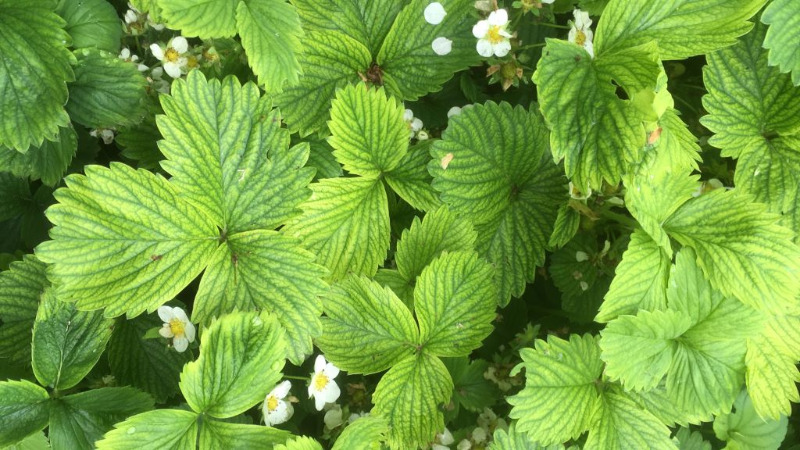 Imageno1.jpg
(Filesize: 177KB)
Imageno1.jpg
(Filesize: 177KB)
-
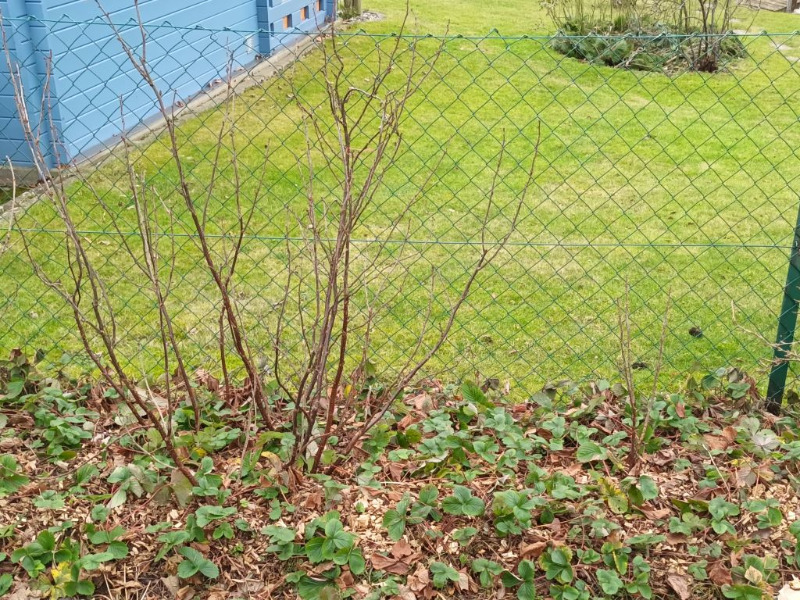 Imageno3.jpg
(Filesize: 308KB)
Imageno3.jpg
(Filesize: 308KB)
-
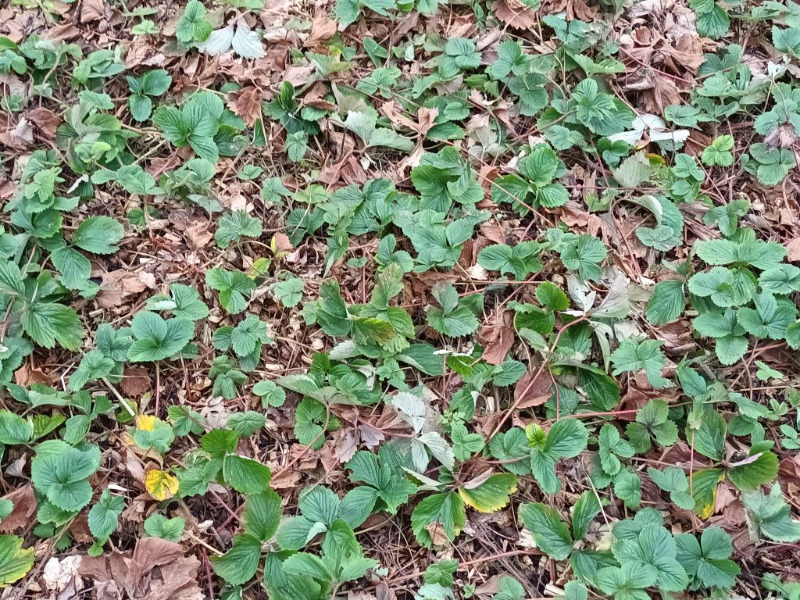 Imageno2.jpg
(Filesize: 319KB)
Imageno2.jpg
(Filesize: 319KB)
-
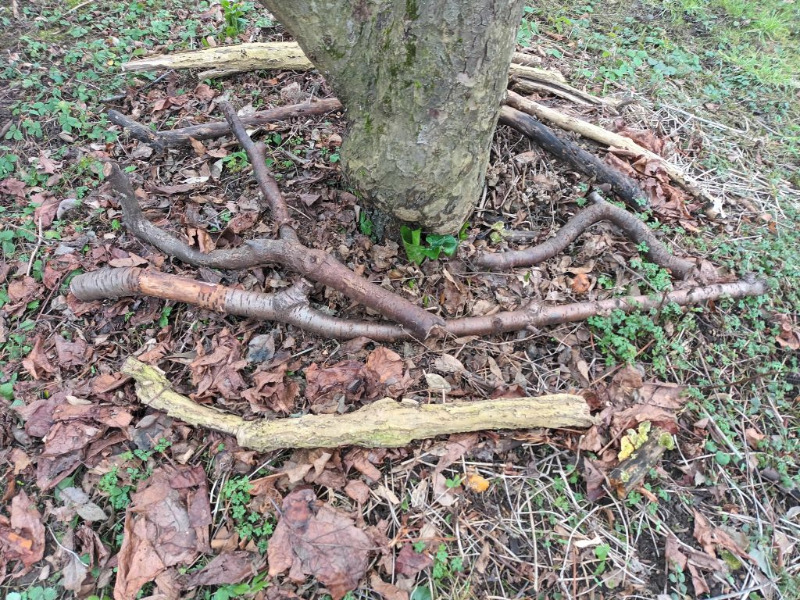 Imageno5.jpg
(Filesize: 324KB)
Imageno5.jpg
(Filesize: 324KB)
-
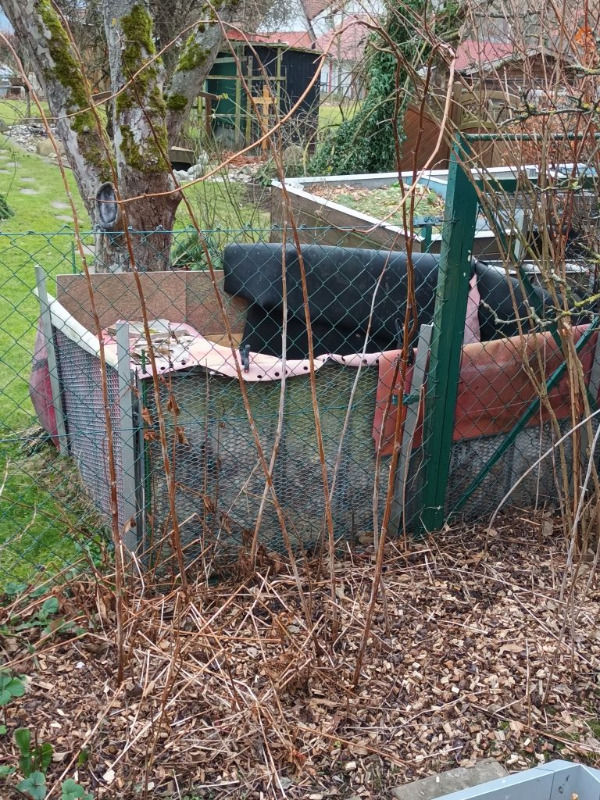 Imageno4_2...2-04.jpg
(Filesize: 316KB)
Imageno4_2...2-04.jpg
(Filesize: 316KB)
Please Log in to join the conversation.
You need to login to reply
Thanks very much Andy and Peter for this information! An interesting arrangement re. the combined application of gray water and urine. That was my thinking, too, when I suggested this approach for the more populated areas of that country town in Uganda. Gravity flow is actually an important feature to make it work without much energy input. It's something that can work in many places of the world!
I'll make a few pics of my applications here in Germany...
I'll make a few pics of my applications here in Germany...
Hanns-Andre Pitot
M.Eng. Environmental Pollution Control
presently in Seesen, Germany
M.Eng. Environmental Pollution Control
presently in Seesen, Germany
Please Log in to join the conversation.
You need to login to reply
Onbehalf of Peter Harper, now retired from his post as Head of Research and Innovation at the Centre for Alternative Technology, Wales:
>The logic was that urine needed diluting and shower-water needed enriching, so combining the two was an attractive solution. Both arose on an upper floor, so we were able to use gravity throughout. Urine was collected via a proprietary Swedish urine-separating toilet. The two streams were led via a standard plastic wastpipe down to a 150 litre plastic tank, mounted on a wooden frame. We just needed a filter for the solid particles in shower water, and the obvious things are cellulosic materials because they can simply be removed for composting and replaced. I used straw in a simple plastic basket. The liquid -- which I facetiously labelled 'house juice' -- accumulated in a
shallow sump, to allow for mixing, then overflowed into a drip line, just a large-diameter hose-pipe. This ran to manifolds in the garden and was distributed by similar pipes with small holes drilled in them, about 15 cm apart. It was a bit like a drip-irrigation system, but home-made.
I was able to test out the effects of the 'house juice' on various crops, and its ability to accelerate humification of light woody material. It improved yields of bush fruit such as blackcurrants, leafy crops like cabbage and cornsalad, but not lettuce or onions. It accelerated breakdown of privet-hedge-clippings.<
See attachments.
Andy
>The logic was that urine needed diluting and shower-water needed enriching, so combining the two was an attractive solution. Both arose on an upper floor, so we were able to use gravity throughout. Urine was collected via a proprietary Swedish urine-separating toilet. The two streams were led via a standard plastic wastpipe down to a 150 litre plastic tank, mounted on a wooden frame. We just needed a filter for the solid particles in shower water, and the obvious things are cellulosic materials because they can simply be removed for composting and replaced. I used straw in a simple plastic basket. The liquid -- which I facetiously labelled 'house juice' -- accumulated in a
shallow sump, to allow for mixing, then overflowed into a drip line, just a large-diameter hose-pipe. This ran to manifolds in the garden and was distributed by similar pipes with small holes drilled in them, about 15 cm apart. It was a bit like a drip-irrigation system, but home-made.
I was able to test out the effects of the 'house juice' on various crops, and its ability to accelerate humification of light woody material. It improved yields of bush fruit such as blackcurrants, leafy crops like cabbage and cornsalad, but not lettuce or onions. It accelerated breakdown of privet-hedge-clippings.<
See attachments.
Andy
This attachment is hidden for guests.
Please log in or register to see it.
Please log in or register to see it.
This attachment is hidden for guests.
Please log in or register to see it.
Please log in or register to see it.
This attachment is hidden for guests.
Please log in or register to see it.
Please log in or register to see it.
This attachment is hidden for guests.
Please log in or register to see it.
Please log in or register to see it.
This message has attachments files.
Please log in or register to see it.
Please Log in to join the conversation.
You need to login to reply
I'm sure that's true - about urine encouraging plant growth and the plants providing the humus. After all, animals have been peeing on the ground for millions of years. And, of course, they do so in a distributed way. So why should it be an issue?
However, humans (correct me if I'm wrong) have a total biomass roughly equivalent to the biomass of all farmed and wild mammals put together. (Cattle are pretty high up there, close to the biomass of humans). So humifying some urine through composting before application to land should be valuable. It also helps to turn carbon 'waste' streams into soil food.
Peter Harper, who did experiments with the use of urine in his garden, is going to post some stuff - or I will post it for him if he can't for whatever reason. Watch this space.
Andy
However, humans (correct me if I'm wrong) have a total biomass roughly equivalent to the biomass of all farmed and wild mammals put together. (Cattle are pretty high up there, close to the biomass of humans). So humifying some urine through composting before application to land should be valuable. It also helps to turn carbon 'waste' streams into soil food.
Peter Harper, who did experiments with the use of urine in his garden, is going to post some stuff - or I will post it for him if he can't for whatever reason. Watch this space.
Andy
Please Log in to join the conversation.
You need to login to reply- Useless
-
Less
- Posts: 4
- Likes received: 2
Re: Can we recycle human urine to close the nutrient cycle?
Actually, urine and other liquid fertilizers do address the 'humus' issue, just in a round about way. Fertilizers promote growth, both above ground and below(roots). That increase in organic matter both sequesters carbon, and adds to the level of humus over time.
Yes, I like adding urine to high carbon sources such as dead leaves, wood chips, and cardboard, which build up the humus faster, but direct application of urine has a positive impact as well. Plus, everyone always talks abut dilution, when the real issue is distribution. If I apply undiluted urine over a large enough area, that has a similar effect to applying a diluted portion of urine to a much smaller area. If I fill a two gallon watering container with undiluted urine, I can pour that out over a 10 ft row, a 100 ft row, or over a 100 yd row. Each of those represent a different application rate - without dilution.
Yes, I like adding urine to high carbon sources such as dead leaves, wood chips, and cardboard, which build up the humus faster, but direct application of urine has a positive impact as well. Plus, everyone always talks abut dilution, when the real issue is distribution. If I apply undiluted urine over a large enough area, that has a similar effect to applying a diluted portion of urine to a much smaller area. If I fill a two gallon watering container with undiluted urine, I can pour that out over a 10 ft row, a 100 ft row, or over a 100 yd row. Each of those represent a different application rate - without dilution.
Please Log in to join the conversation.
You need to login to reply
Thanks Kris,
Nice video. Encouraging.
One of the issues which doesn't get touched enough is that liquid fertilisers don't address the need for humus. Ideally, the urine would be mixed with high carbon waste streams such as cardboard, straw etc and go through a composting process to humify the nutrients.
Not that I'm not an expert on the biology of that, just fine with the practice of on a garden sized scale.
Andy
Nice video. Encouraging.
One of the issues which doesn't get touched enough is that liquid fertilisers don't address the need for humus. Ideally, the urine would be mixed with high carbon waste streams such as cardboard, straw etc and go through a composting process to humify the nutrients.
Not that I'm not an expert on the biology of that, just fine with the practice of on a garden sized scale.
Andy
Please Log in to join the conversation.
You need to login to reply
Well, that's a very good question. It's a long time ago and he no longer lives there. I will see what he remembers, but it wasn't a filter in the sense of a gauze or similar. That would have blocked far too easily. It was more like a settlement area. I recall a vertical piece of 110mm pipe with the incoming waste being sent to the bottom and the overflow being at the top. The bottom would have had a removable cap for cleaning. Perhaps it was bigger diameter than 110mm so as to slow down flow and get more settlement.
Will see if I can update.
Regards, Andy
Will see if I can update.
Regards, Andy
The following user(s) like this post: HAPitot
Please Log in to join the conversation.
You need to login to reply
An interesting story you are telling, Andy! It would be nice to see that garden...
Would you mind telling us more about the filter? What material is it made of and what size is it?
Cheers, H-A
Would you mind telling us more about the filter? What material is it made of and what size is it?
Cheers, H-A
Hanns-Andre Pitot
M.Eng. Environmental Pollution Control
presently in Seesen, Germany
M.Eng. Environmental Pollution Control
presently in Seesen, Germany
Please Log in to join the conversation.
You need to login to reply
Hi Hanns-Andre,
Thanks for your two posts. A friend of mine who was Head of Research and Innovation at the Centre for Alternative Technology, Mid Wales, set up a system of this sort at his home in Machynlleth. He had a urine separating flush toilet upstairs and the urine was combined with waste water from the bathroom. We devised a hair filter to prevent hair blocking the irrigation pipes.
The mixed grey water and urine was fed to these small bore irrigation pipes which went to his soft fruit bushes. They did very well as I remember things, though he no longer lives there.
Best regards, Andy
Thanks for your two posts. A friend of mine who was Head of Research and Innovation at the Centre for Alternative Technology, Mid Wales, set up a system of this sort at his home in Machynlleth. He had a urine separating flush toilet upstairs and the urine was combined with waste water from the bathroom. We devised a hair filter to prevent hair blocking the irrigation pipes.
The mixed grey water and urine was fed to these small bore irrigation pipes which went to his soft fruit bushes. They did very well as I remember things, though he no longer lives there.
Best regards, Andy
The following user(s) like this post: HAPitot
Please Log in to join the conversation.
You need to login to reply
Dear lead author,
There actually is another way of making use of urine; that would be via the irrigation of treated waste water. This approach makes sense since urine needs to be diluted anyway, usually 5 to 10 times, when applied to soil. So the traditional approach of the sewage system is maintained but in order to reduce the investment costs and the load on the treatment plant, the solids (feces) would ideally be kept out of the sewage system.
Such an approach allows to reduce the costs of the sewage system by allowing small bore technology. If people use flush toilets, that approach requires so called withholding tanks on site, which are like small septic tanks which discharge into the sewage system and are emptied on a
regular basis. Alternatively, the small bore sewer could be implemented in conjunction with urine diverting dry toilets, where the urine is going together with the gray water into the sewer, whereas the solids are processed on site. Ideally, the processed solids could be picked up as ‘bio-waste’ in conjunction with the collection of organic waste (which is usually required anyway) and composted together.
Irrigation of treated waste water is quite common in the US and other parts of the world. I remember when I was a student in State College, PA, there was such a system for the irrigation of treated waste water. In the US, these are, however, usually implemented in conjunction with a regular sewage system. Apparently, small bore systems are used in Australia. I think for the irrigation of the waste water, you’d need in the order of 100 to 200 m² per person, depending on the climate.
I once suggested such a system – a combination of urine diverting dry toilets (as a choice, or alternatively, WC in combination with a withholding tank), small bore sewer system, treatment ponds, and waste water irrigation for Moroto, a municipality of about 20000 people in North-East Uganda. A local farmer on whose land the treatment and irrigation were supposed to happen, was very interested, but unfortunately, the plan didn’t go through. Of course, for such a system to work, you need enough land and the active participation of farmers.
A word about treatment ponds : Of course, these can be replaced by another technology (with the aim of reducing odors and eliminating pathogens), but treatment ponds are cheap in terms of construction and astonishingly effective. Due to the high level of UV radiation in tropical countries, pathogen counts are strongly reduced in such an arrangement.
Would something like that be something for Bolivia ?
Kind regards, H-A
There actually is another way of making use of urine; that would be via the irrigation of treated waste water. This approach makes sense since urine needs to be diluted anyway, usually 5 to 10 times, when applied to soil. So the traditional approach of the sewage system is maintained but in order to reduce the investment costs and the load on the treatment plant, the solids (feces) would ideally be kept out of the sewage system.
Such an approach allows to reduce the costs of the sewage system by allowing small bore technology. If people use flush toilets, that approach requires so called withholding tanks on site, which are like small septic tanks which discharge into the sewage system and are emptied on a
regular basis. Alternatively, the small bore sewer could be implemented in conjunction with urine diverting dry toilets, where the urine is going together with the gray water into the sewer, whereas the solids are processed on site. Ideally, the processed solids could be picked up as ‘bio-waste’ in conjunction with the collection of organic waste (which is usually required anyway) and composted together.
Irrigation of treated waste water is quite common in the US and other parts of the world. I remember when I was a student in State College, PA, there was such a system for the irrigation of treated waste water. In the US, these are, however, usually implemented in conjunction with a regular sewage system. Apparently, small bore systems are used in Australia. I think for the irrigation of the waste water, you’d need in the order of 100 to 200 m² per person, depending on the climate.
I once suggested such a system – a combination of urine diverting dry toilets (as a choice, or alternatively, WC in combination with a withholding tank), small bore sewer system, treatment ponds, and waste water irrigation for Moroto, a municipality of about 20000 people in North-East Uganda. A local farmer on whose land the treatment and irrigation were supposed to happen, was very interested, but unfortunately, the plan didn’t go through. Of course, for such a system to work, you need enough land and the active participation of farmers.
A word about treatment ponds : Of course, these can be replaced by another technology (with the aim of reducing odors and eliminating pathogens), but treatment ponds are cheap in terms of construction and astonishingly effective. Due to the high level of UV radiation in tropical countries, pathogen counts are strongly reduced in such an arrangement.
Would something like that be something for Bolivia ?
Kind regards, H-A
Hanns-Andre Pitot
M.Eng. Environmental Pollution Control
presently in Seesen, Germany
M.Eng. Environmental Pollution Control
presently in Seesen, Germany
Please Log in to join the conversation.
You need to login to reply
Share this thread:
- Sanitation systems
- Toilets with urine diversion
- Urine treatment, transport, storage
- Re: Can we recycle human urine to close the nutrient cycle?
Recently active users. Who else has been active?
Time to create page: 0.443 seconds








